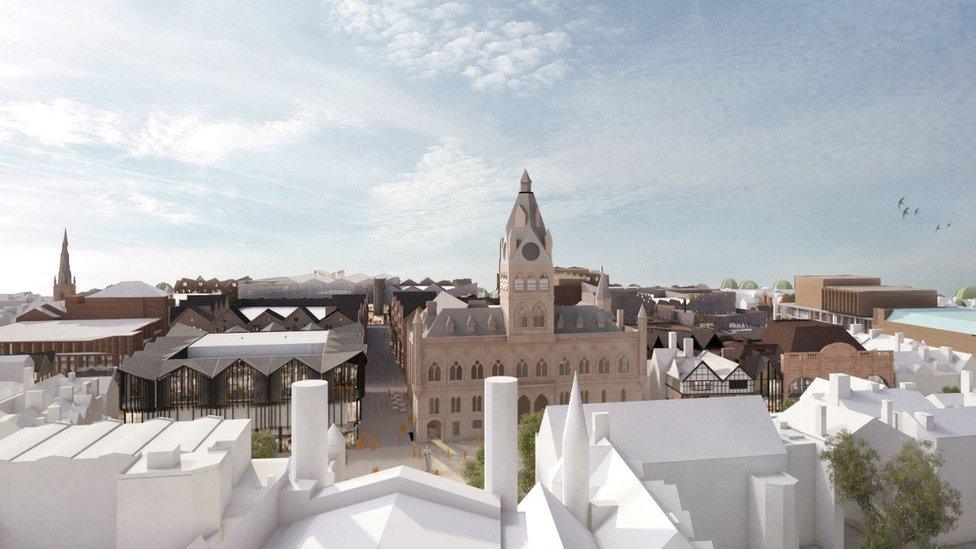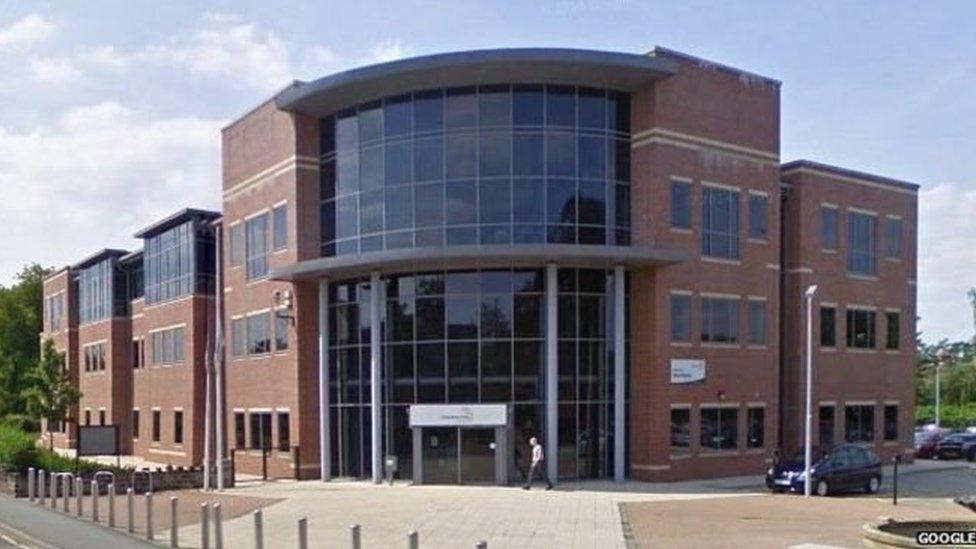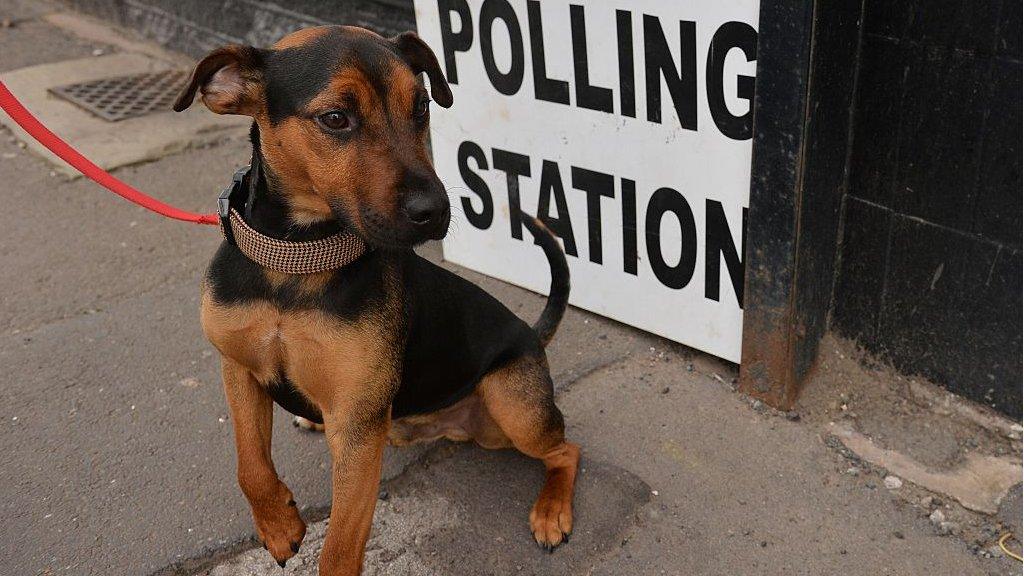Decade-old Cheshire councils look for stability
- Published

This year marks the third time the two councils have been elected
They have had a difficult childhood, but in 2019, Cheshire's two councils turned ten.
Cheshire East Council and Cheshire West and Chester Council were born in April 2009, external after the death of seven local authorities across the county.
As they have grown up, Cheshire East Council has been dogged by police investigations and both have come under scrutiny because of questions over the way money has been spent.
It was hoped the split would make the system more efficient and even lead to lower council tax bills.
Arguably the latter has turned out to be true, as although the bill on both sides of the county has increased by over £200 a year, the rise has been lower than the rate of inflation.
Of course, government-imposed austerity has meant huge changes to the way public services are run at both authorities, meaning it has been difficult to judge how well they have performed against the old system.
This year marks just the third election at both councils and a lot can change, because all 152 seats are being contested.
Regeneration ahead?
In the west, Labour gained control from the Conservatives at the last election four years ago, but they had a majority of just one, so the Tories are hopeful they can take it back this time around.
The result is difficult to predict even if Brexit intrudes on these local polls, because the borough was the most equally divided in the North West in the 2016 referendum - with 50.7% voting to leave against 49.3% in favour of remaining.

The Northgate plan has been supported by both Labour and Conservative administrations
The Conservatives have pledged to reverse the decision to scrap free parking in Chester, Northwich and Ellesmere Port, while Labour point out that some parking fees have decreased.
They also say those changes and other controversial decisions were necessitated by government cuts.
The council has also had some big problems with major regeneration schemes, with the Conservatives saying Northwich's new Baron's Quay shopping complex should be "redefined" given the number of empty shops, and plans for a new public hub in Ellesmere Port should be "reviewed" given the cost to the public purse.
The council has said both plans will boost the towns' economies.
However, both parties appear to agree on one project, Chester's Northgate, amidst intense debate in the city, with both parties having been behind the plans when in power.
Both parties are also keen to show-off their green credentials, with members on both sides pointing to their involvement in high-profile campaigns to cut the use of palm oil and plastic straws in Chester.
A time for change?
In the east, the Conservatives have a majority of 16, but the 33 remaining seats are split between Labour, the Liberal Democrats, independent members and a series of local groups.
The opposition parties are all citing the series of police investigations at the council which are looking into the way contracts were awarded, land was bought, money was granted to a school and official pollution data may have been "manipulated".
They are also citing the long-term suspensions of the council's three most senior managers, all of whom have resigned.
The Conservatives say the council is now "strong" after its "historic" problems, but Labour says it has "lurched from scandal to scandal".

Cheshire East Council has experienced a turbulent four years
More conventionally, the parties have been rowing about the council's plan for future housing and a review of parking, which has led to charges being introduced in some areas which were free.
Intriguingly, this may not be the final vote the borough faces either - all opposition parties are trying to get 15,209 signatures on a petition to change the way the council's run.
If that number is reached, it would represent 5% of registered voters, automatically triggering a referendum on the issue.
Whoever takes power at Cheshire East Council will probably be making the assumption that the next four years cannot possibly be as turbulent as the last four.
- Published9 April 2019
